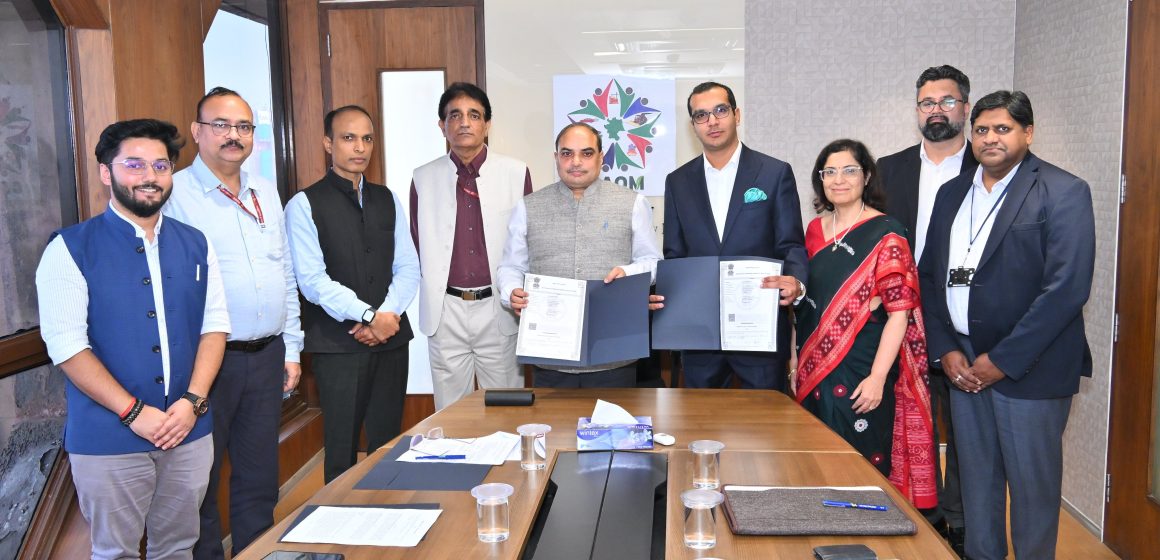Under the agreement, CAQM and CII will jointly advance air quality management initiatives, recalibrate compliance frameworks for industrial and construction emissions, and expand clean and green economy solutions.
Even as concerns over worsening air quality in the Delhi National Capital Region (NCR) and surrounding areas grow ahead of the winter season, the spokesperson for a statutory environmental body has highlighted the Indian industry’s responsibility to address the issue.
“Industry plays a critical role in improving air quality,” said Rajesh Verma, Chairperson, Commission for Air Quality Management (CAQM). “Progress demands continuous learning and implementation to deliver large-scale impact on the ground.”
Verma was speaking on October 31 at the signing of a memorandum of understanding (MoU) between CAQM and the Confederation of Indian Industry (CII), aimed at strengthening collaborative efforts to address air pollution across the region on October 31.
“I am confident this MoU will galvanise field-level action, supported by CII’s entrepreneurial ideas, industrial innovation, and targeted Information, Education and Communication (IEC) outreach to wider stakeholders,” he added.
Under the agreement, CAQM and CII will jointly advance air quality management initiatives, recalibrate compliance frameworks for industrial and construction emissions, and scale up clean and green economy solutions. The partnership also includes capacity-building and awareness programmes for industries, farmers and citizens.
Madhav Singhania, Immediate Past Chairman, CII Northern Region & Deputy Managing Director & CEO, JK Cement, also spoke at the event.
“Clean air is essential not only for healthier, more resilient cities, but also for a thriving economy and globally competitive businesses,” he said. “Through this MoU, we reaffirm our shared commitment to drive awareness, foster behavioural change, and mobilise resources for tangible outcomes on the ground.”
Singhania described the agreement as a significant step forward in the collective pursuit of improved air quality and a healthier future for the region.


